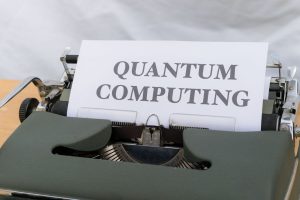Over the past two decades, numerous businesses such as Google, Microsoft, and IBM have joined the race to develop quantum computing. Investors have contributed well over $5 billion towards the ultimate goal of creating the next major innovation. Quantum computers utilize the unusual rules of atomic and subatomic matter to process data in ways unattainable by traditional or classical computers. This technology could revolutionize industries like drug development, cryptography, finance, and supply chain management.
However, the primary challenge hampering the progress of quantum computing is the issue of noise and decoherence, which lead to errors in computations. Qubits, the fundamental unit of quantum computing, are highly sensitive to their environment, and any disturbance or fluctuations in temperature can cause them to lose their quantum state, affecting the accuracy and reliability of calculations.
Noise: the enemy of quantum computing
Despite the potential of quantum computing, it remains fragile and susceptible to even the slightest disturbance, such as a stray photon produced by heat, an accidental signal from nearby electronics, or a physical vibration. This noise causes chaos, leading to errors or even bringing quantum computation to a halt. Scientists and researchers are diligently working on ways to mitigate this issue, utilizing strategies like error correction algorithms, better materials, and improved isolation techniques. The race towards a truly functional and efficient quantum computer hinges on finding the perfect balance between inherent fragility and maintaining performance capabilities.
Researchers believed they might have to work with noisy components. Many sought applications that would still be practical with limited capacity. Although this search has not been particularly successful, recent theoretical and experimental advancements have given researchers hope that noise issues might finally be tackled. These advancements include developing innovative error-correcting techniques and refining hardware designs to minimize interference, driving renewed optimism within the scientific community.
Sabrina Maniscalco, a professor at the University of Helsinki studying the impact of noise on computations, admitted that a decade ago, she dismissed quantum computing due to fundamental issues. However, technological advancements and innovative research around quantum computing began addressing these challenges, changing her perspective and revealing its immense potential to transform industries and solve complex problems.
Combining hardware and software techniques
A mix of hardware and software techniques shows potential in reducing, managing, and correcting quantum errors, aiming to enhance stability and improve overall performance. Researchers are making significant strides toward achieving fault-tolerant quantum computing by combining advanced algorithms with robust hardware designs.
Featured Image Credit: Photo by Markus Winkler; Pexels
The post Quantum computing progress hindered by noise appeared first on ReadWrite.


Comentarios recientes